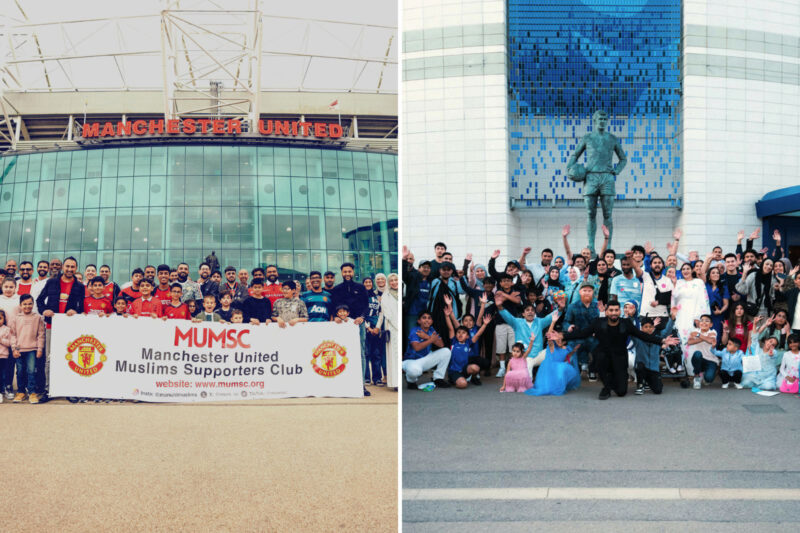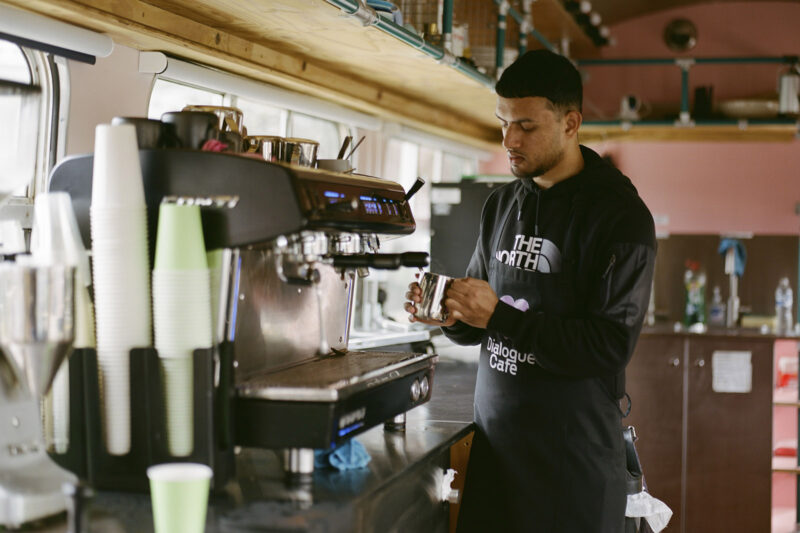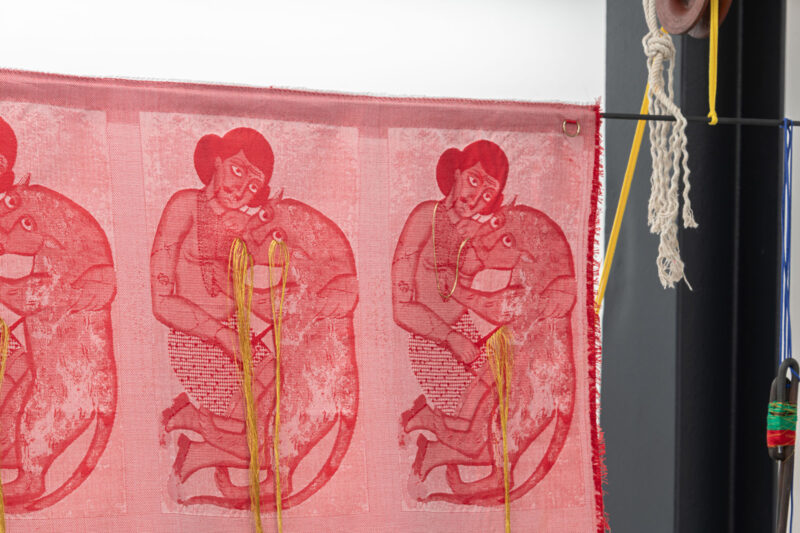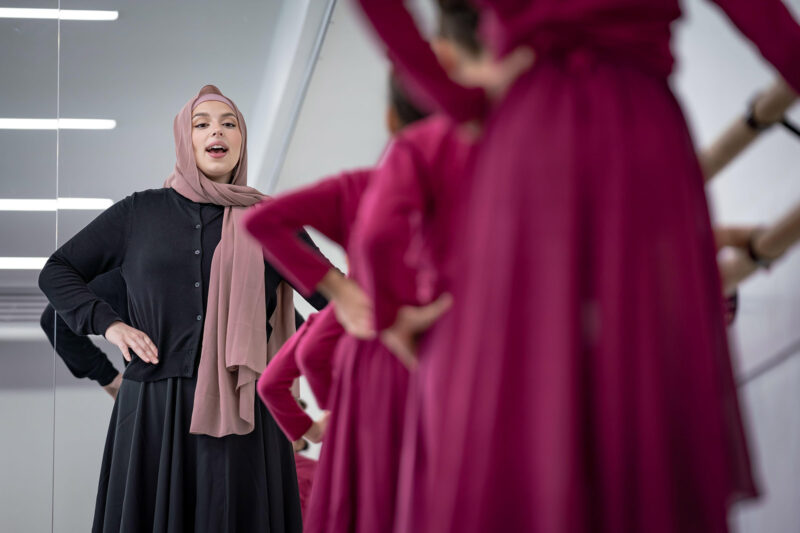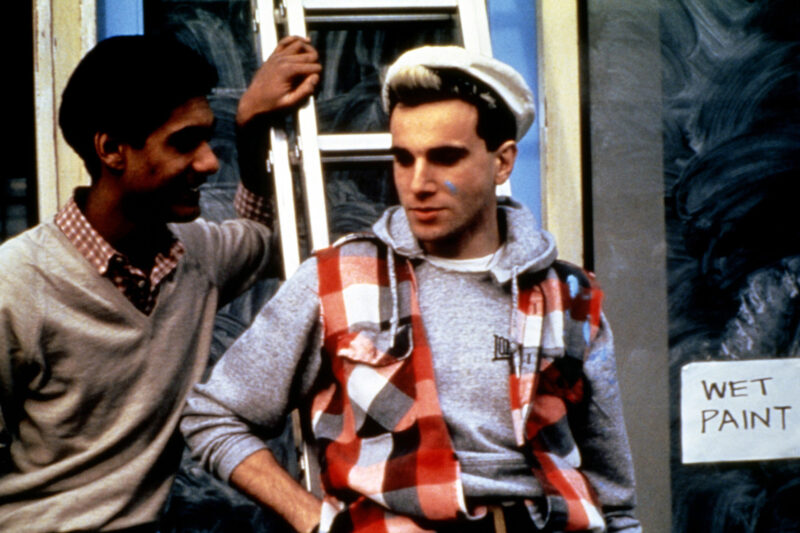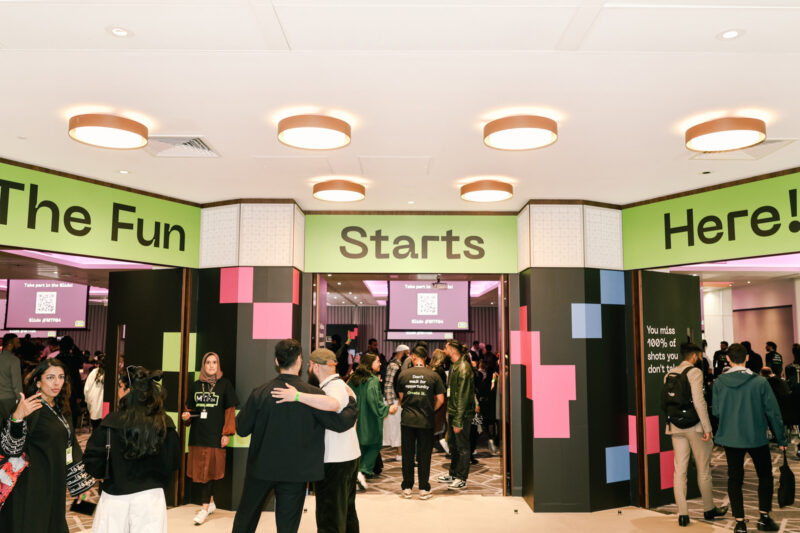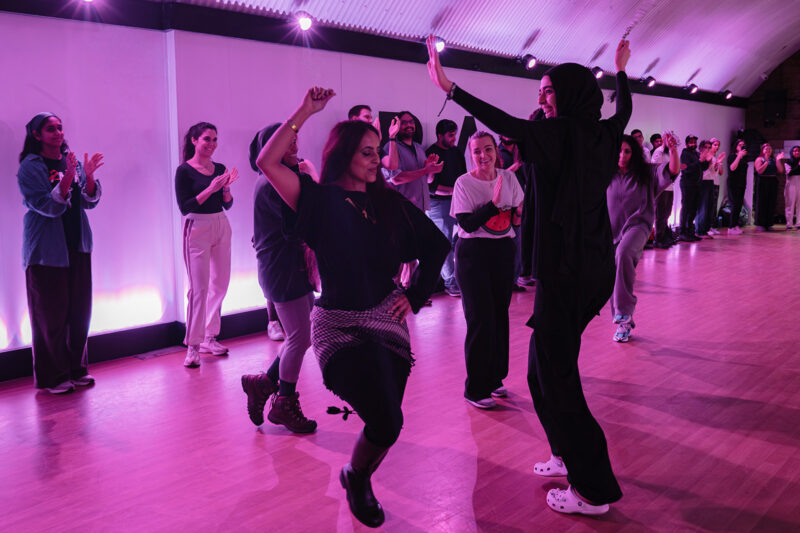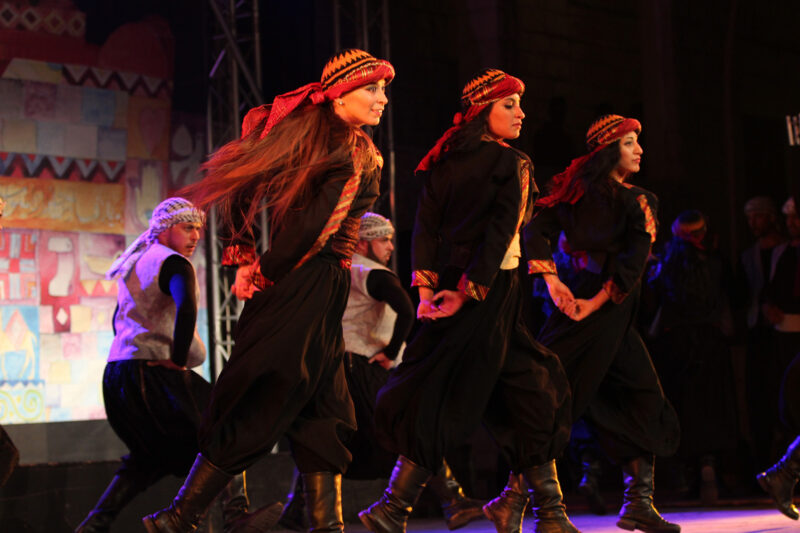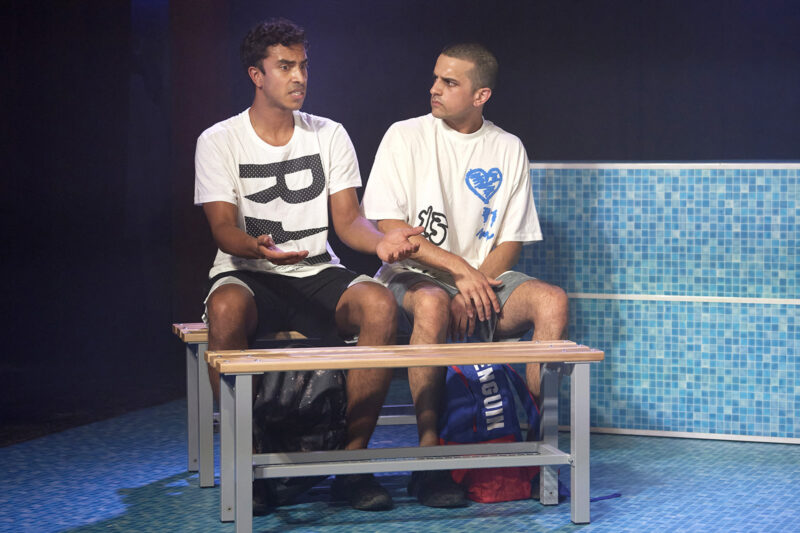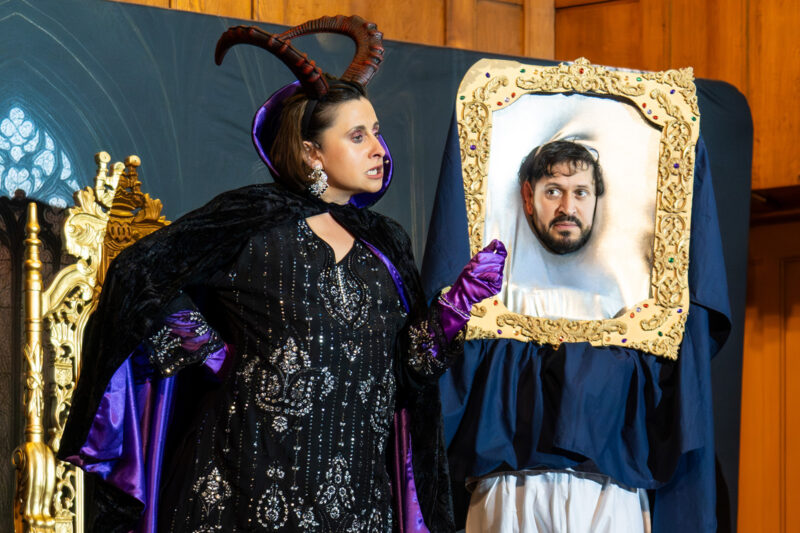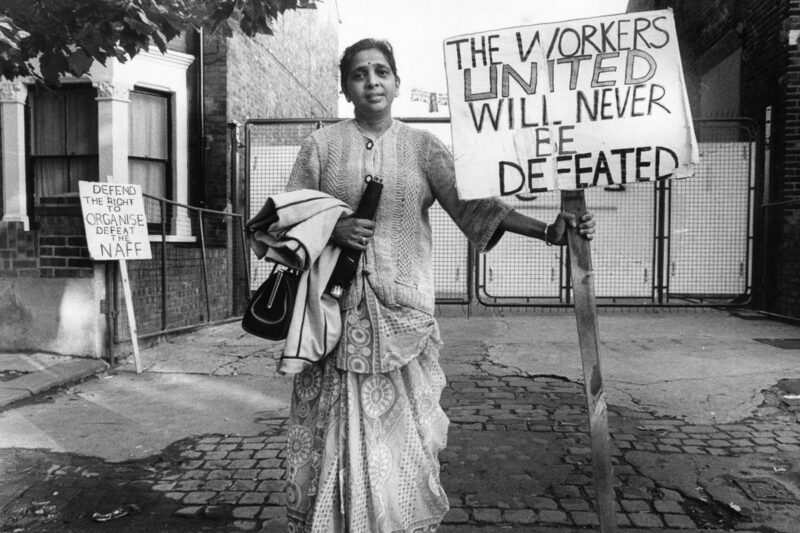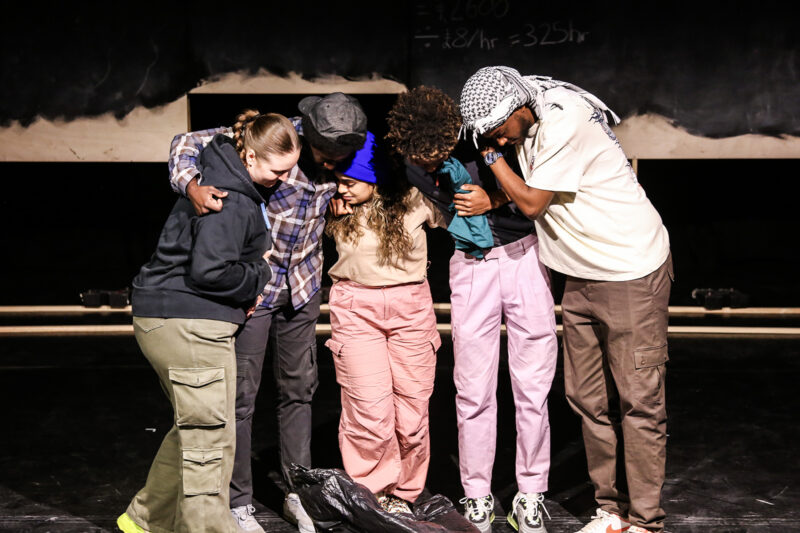‘Our mission is to make theatre spaces welcoming to Muslims’
Muslims in the arts are finding practical ways to make theatre more inclusive, from prayer rooms to not serving alcohol
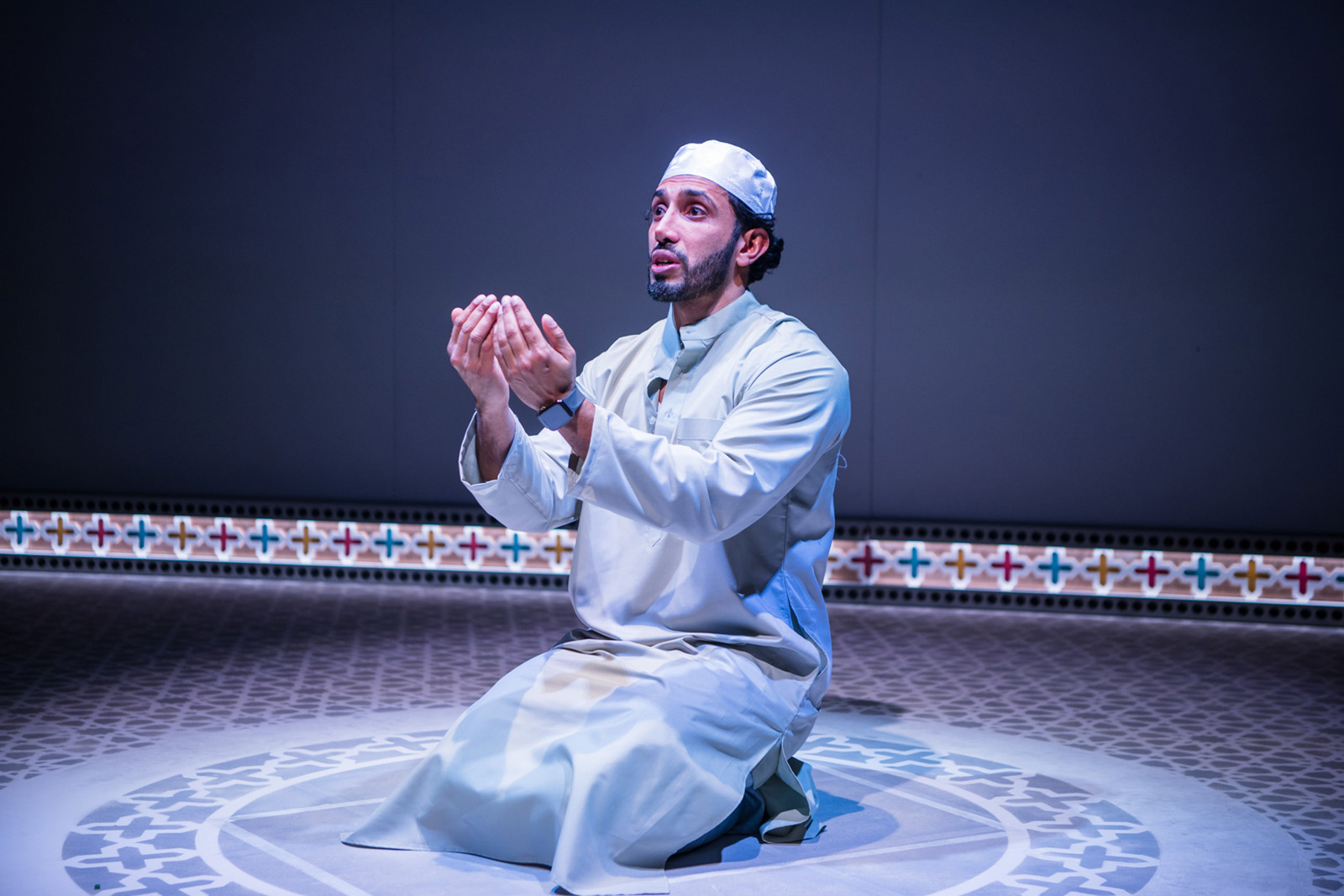
A soft light spreads across the stage at Riverside Studios in Hammersmith, west London, illuminating a kneeling Yasser, played by Adeel Ali. Ali’s hands are raised in prayer. Above his head, his words are projected in both English and Urdu: “They judge me but they don’t understand that I’ve had a really difficult time. Only You know this.”
In the UK theatre industry, where Muslims are vastly underrepresented, Shahid Iqbal Khan’s play 10 Nights is an anomaly. Critics have praised the show — which follows Yasser’s personal journey with Islam — for its inclusivity, centring on Muslim experience with a diverse cast and the use of subtitles in the performance. However, off stage the venue still lacks a dedicated prayer space for audiences and actors, highlighting a widespread issue with faith accessibility across many theatres.
“I often look at the calendar of religious events when planning a show and I’m always aware about prayer times and things like that, but it’s not always easy because venues need to operate from a financial point of view,” says director Samir Bhamra.
“We are stretched, but we do need to do more planning about how we can be more practically accommodating to audiences,” says Rhys Williamson, head of programming at Riverside Studios, when asked why a prayer room wasn’t available. “If we had more Muslim representation in our office staff, that’s something we could have proactively and instinctively thought to ask.”
Research by Arts Council England (ACE) in 2015 found that in London, a city where 46% of the population comes from minority ethnic backgrounds, people of colour accounted for only 5% of theatre employees. ACE also found that “concerns about feeling uncomfortable or out of place” were among the biggest factors deterring people from underrepresented communities from entering the arts.
That issue has been at the forefront of Luqman Ali’s mind for decades. As the artistic director of the Luton-based Khayaal Theatre Company, which seeks to showcase Islamic literature and heritage, he has been encouraging venues to engage with Muslim productions and audiences since the 1990s. His work towards faith accessibility goes beyond presenting diverse stories and cast members.
“Our mission is to make theatre spaces welcoming to Muslims,” says Ali. “Even with our very first production in 1998, we made sure it was timed to not clash with salah (prayer). We had prayer spaces available inside the venue. There was no alcohol being served in order to make sure our offer was as inclusive as possible to the widest range of Muslims, whatever their degree of practice.”
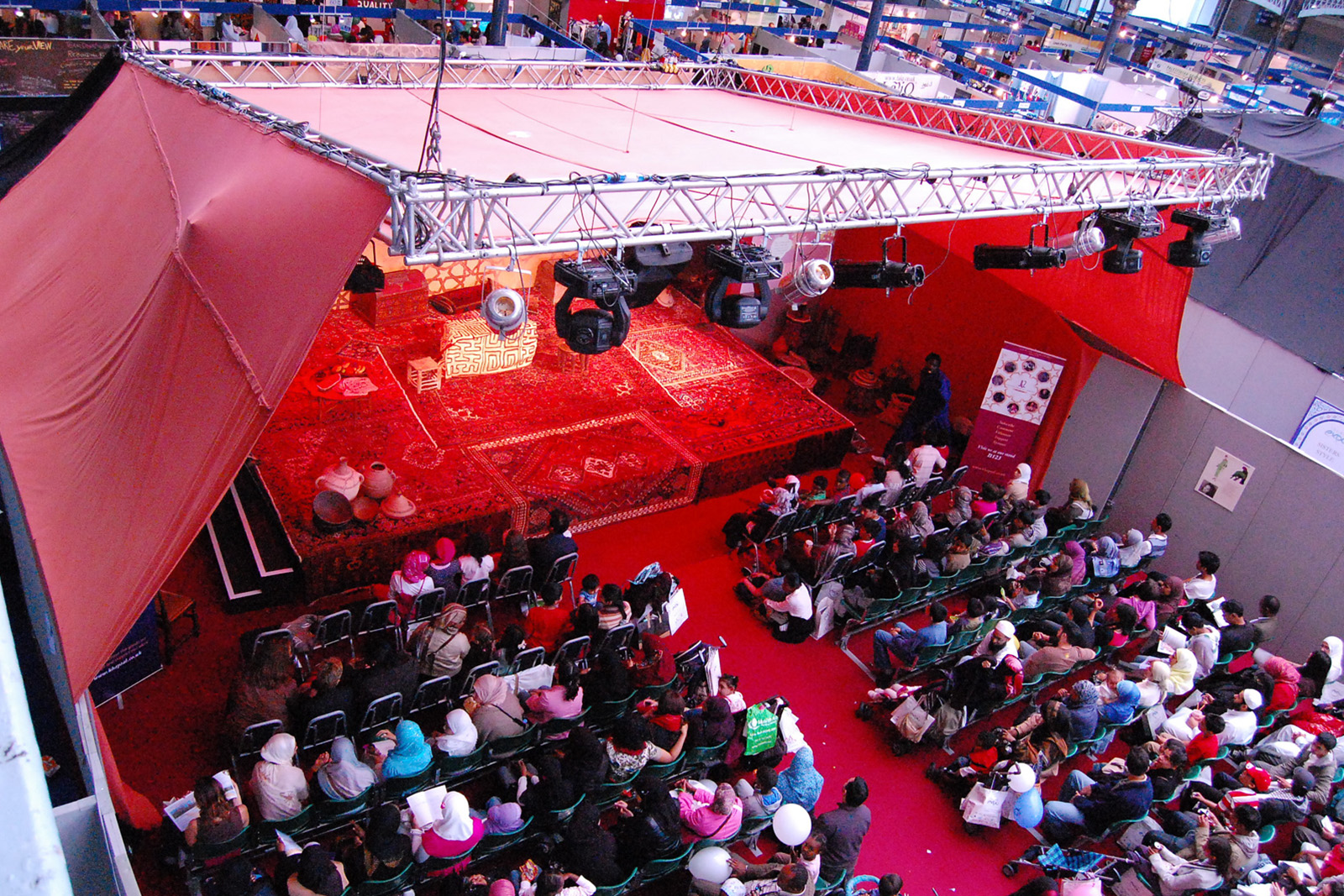
He recalls that in other productions the intermission was planned to coincide with the time of salah, and the congregational prayer was held for both men and women on stage.
However, planning around faith sensitivity largely depends on the venue. “We definitely push as far as we can, but some theatre spaces will have multiple shows running simultaneously, so getting them to stop serving alcohol, for instance, would be difficult,” Ali says.
Such considerations have an effect on who ultimately engages with theatre. “I know some Muslim families who don’t go anywhere where alcohol is served,” says Guleraana Mir, writer and executive director of theatre company The Thelmas. “That limits where they can go. When it comes to considering the cultural needs of people, it’s a case of whether venues are willing to make sacrifices or changes in order to make the place more welcoming.”
Affordability is another obstacle. With 39% of Muslims living in the most deprived areas of England and Wales, theatre is often seen as a privilege.
“Financial barriers are a massive thing. How much are you charging per ticket? Is the average working-class person going to be able to afford it? These all have an impact,” she says.
Mir believes the process starts by creating work that is relevant to marginalised communities, then reinforcing that by making sure venues take steps to accommodate those audiences.
“There are many diverse productions I’ve gone to see where the audience is still all white,” she says. “Why are the cultures on stage not represented in your audience? It’s one job to programme the shows and a completely different job to make sure your marketing and audience development work gets the right people in.”
One promising example was the run of Peanut Butter and Blueberries by Suhaiymah Manzoor-Khan at the Kiln Theatre in Kilburn, north-west London, in August 2024. Spotlighting the relationship between two Muslim university students, the production’s Muslim-majority audience was provided with readily available prayer spaces, without having to ask in advance. The show’s start time was brought forward to 7pm so that audiences would be finished in time for maghrib prayer.
“Peanut Butter and Blueberries was a trailblazer in making these factors a big part of the conversation when it came to programming and production,” says Mir. “For someone to actually stand up and say ‘this is what needs to happen’ feels like a big step forward.”
That said, there is a need for continued engagement on both sides. “As a community, we need to brave up a little,” says Bhamra. “We need to go into the spaces we don’t feel are for us and be visibly present. Only then can those spaces also feel the confidence to say: ‘We had a 60% Muslim audience come to watch this show, so next time we need to actually cater towards them.’”
Compared to when he first started at the Khayaal Theatre Company, Ali says that the arts landscape has improved and encourages institutions to respond to changing demographics.
“When we began, there was a view that theatre and Muslim culture were mutually exclusive. But theatres that are surrounded by large Muslim communities can no longer hold the same position,” he says. “If they don’t engage going forward, they’ll become less relevant.”
 Newsletter
Newsletter


